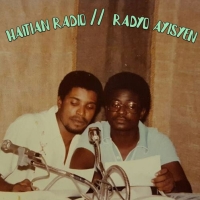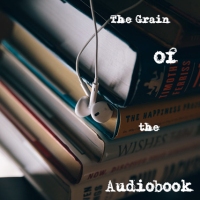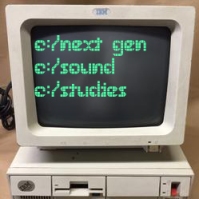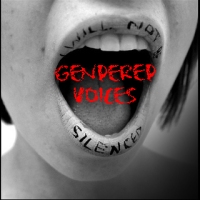Functional Sound (Studies): The First European Sound Studies Association Meeting

On October 4-6, 2013 ESSA – The European Sound Studies Association – will have its first conference in Berlin. This initiative is just the latest sign that an institutionalization is taking place within the inter-disciplinary field of sound studies. Erik Granly Jensen, who is one of the founding members and vice-chair of ESSA, tells the story here:
During the past decade, the field of sound studies – or auditory culture if you will –has been growing immensely. International conferences and seminars, numerous dissertations, monographs and research articles have shaped a vibrant, interdisciplinary area of study that of course has a much longer history within the more traditional disciplines of the humanities and social sciences, but which during the past 10-15 years has morphed into a discipline of its own. Just last year, two extensive collections of theoretical texts appeared with major publishing houses, The Oxford Handbook of Sound Studies (ed. Trevor Pinch & Karin Bijsterveld) on Oxford University Press and The Sound Studies Reader (ed. Jonathan Sterne) on Routledge. A second edition of the classic Auditory Culture Reader (ed. Michael Bull) is in the making and supposedly another Routledge anthology is being planned as well. Furthermore, in 2010 three European journals on sound cultures appeared within just a few months: the Holland-based Journal of Sonic Studies, the Ireland-based journal Interference and the Denmark-based SoundEffects; all three of them international online journals devoted to the analysis of sound cultures with an explicit ambition to integrate sound into academic analysis. To give an illustration of the interest that these journals are already enjoying is the fact that SoundEffects in 2012 alone had 15,000 individual article downloads.

With all these activities taking place, supplemented by the high number of research networks and transnational research projects throughout Europe, for instance “Sound in Media Culture” sponsored by the German Research Foundation or “The Nordic Research Network for Sound Studies” sponsored by the Nordic Research Foundation, Nordforsk, it seemed to be a question of time before the area of sound studies would take yet another disciplinary step and bring all the efforts together in an association. For even if the field of sound studies is alive and well, the advantage of creating a lasting academic platform where researchers, practitioners and artists can meet annually to exchange ideas and build new networks should not be underestimated. The existence of an association and an explicit reference to a global community for research and artistic practice into sound could be the decisive argument for both the introduction of university programs and job positions within sound studies. ESSA, The European Sound Studies Association that was founded last year could become such a forum.

As is so often the case, the idea for a sound studies association arose at an occasion that was scheduled for other purposes. In January of 2012, twelve members of the Nordic Research Network for Sound Studies were gathered in Copenhagen to plan the activities of the Nordic research network, www.sdu.dk/norsound. During discussions of a possible doctoral school that would include not just doctoral students from the Nordic countries, but be a traveling European doctoral school, the idea for both a European summer school and for a forum that could facilitate sound studies throughout the European continent was put on the table. Everybody present (including Anahid Kassabian, Michael Bull, Heikki Uimonen, and Marcel Cobussen to mention a few) agreed that this was both a great and a timely idea and the association ESSA, European Sound Studies Association, was born.
ESSA is a groundbreaking organization, bringing together the widest range of approaches to the study of sound. It’s exciting to be involved in its earliest stages and to participate in shaping this new community. I’m very much looking forward to its growth over the next few years and to ESSA becoming a productive environment for scholars working with many aspects of sound. –Anahid Kassabian, University of Liverpool
During the past year, an ESSA website was launched and discussions of a possible legal statute of the association have been circulating in the group parallel with the planning of the first ESSA conference. The reason for the working of the legal statute is, that ESSA in the future will be run by membership donations and through a democratically elected board of members.
In particular musicologist Morten Michelsen from the University of Copenhagen and Holger Schulze, professor of historical anthropology of Sound at the Academy of Arts in Berlin (two other members of the founding group) have been the driving forces of ESSA in this initial phase. At this point where everything is still waiting to happen, it is of course hard to predict what ESSA will be and what kind of an association it can be in the future. However, the ambition is to provide “a forum where those involved in the study of sound can meet and exchange ideas.” ESSA will also encourage “the development of research and systematic study in topics and in areas where such study in not well developed” as is stated on the website. In addition to these overall ambitions, the initial idea of a European doctoral summer school for sound studies still has a high priority as a future goal for ESSA.
With the founding of the European Sound Studies Association – the study of sound in all it’s inter-disciplinary richness and diversity now has an independent institutional voice for the first time. The range of sonic scholars that is converging on Berlin for ESSA’s first annual conference in October is evidence of both the need and the success of ESSA. The presence of ESSA will provide a platform, not just for European scholars, but for all those working on sound globally. –Michael Bull, University of Sussex
The theme for the upcoming conference in Berlin is “Functional Sound.” The conference will focus on existing as well as emergent and cutting-edge approaches to functional sound design, sonification, auditory culture, everyday soundscapes, artistic concepts and popular culture. In particular, the conference encourages presentations that include both theoretical and practical aspects and presentations that address everyday contexts within which sound—in its relation to media, technology, and the arts—is constitutive for new ways of thinking, listening, and becoming. The conference is a joint venture with the international research network “Sound in Media Culture” (led by Holger Schulze). During the three conference days, paper presentations in six parallel streams will cover topics such as “Soundscape of the Urban Future,” “Sound Design Practices,” “Sonic Artistic Practices and Research,” and “Cultural Politics & Sonic Experience.” [Editor: Click here for the full program, which includes several Sounding Out! editors and writers: Jennifer Stoever-Ackerman, Neil Verma, reina alejandra prado saldivar, Mack Hagood, and Regina Arnold. –JSA]

The confirmed keynote speakers are all leading scholars in the field and include Douglas Kahn, who is professor of Media and Innovation at the University of New South Wales in Sydney. Professor Kahn has been a driving force for the development of sound studies, primarily due to his influential 2001 book Noise, Water, Meat: A History of Sound in the Arts. Jason Stanyek, professor at the Faculty of Music at Oxford University, is also a keynote speaker. Professor Stanyek is a musicologist, who specializes in Brazilian hip-hop and Pan-African Jazz. Also he is the co-editor of The Oxford Handbook of Mobile Music Studies. The final keynote speaker is Thomas Macho, professor in cultural history at the Humboldt University in Berlin. Professor Macho has published on numerous subjects but of special interest for the sound studies field is his work concerned with the human voice and most recently his book on synchronization, Kulturtechniken der Synchronisation from 2011.
For those who cannot make it to Berlin this year, the place and dates for the 2014 ESSA conference have already been decided. It will take place in Denmark on June 27-29 2014 at the University of Southern Denmark in Odense. To be updated about ESSA and future events, please visit the website, http://www.soundstudies.eu, and sign up.
—
Featured Image Courtesy of Mediateletipos. In 2008, artist Akio Suzuki presented a sound installation around Berlin’s water tower focused on listening to everyday situations, directing listener’s attention through audial symbols painted on the ground.
—
Erik Granly Jensen is associate professor at the Department for the Study of Culture at the University of Southern Denmark. He is the research leader of The Nordic Research Network for Sound Studies, sponsored by Nordforsk 2011-2014. He is also the co-editor of the online journal SoundEffects and a founding member of ESSA, The European Sound Studies Association. His most recent research areas include historical sound archives and radio art. Contact: erikgranly@sdu.dk
—
 REWIND! . . .If you liked this post, you may also dig:
REWIND! . . .If you liked this post, you may also dig:
“Once the word ‘sound’ was in the title, it opened up a kind of door”: A Conversation with Eric Weisbard –-Liana Silva
Listening to the A. D. White House: Cornell’s Society for the Humanities’ Year in Review–Timothy Murray
Sound at ASA 2012–Jennifer Stoever-Ackerman


















Trackbacks / Pingbacks